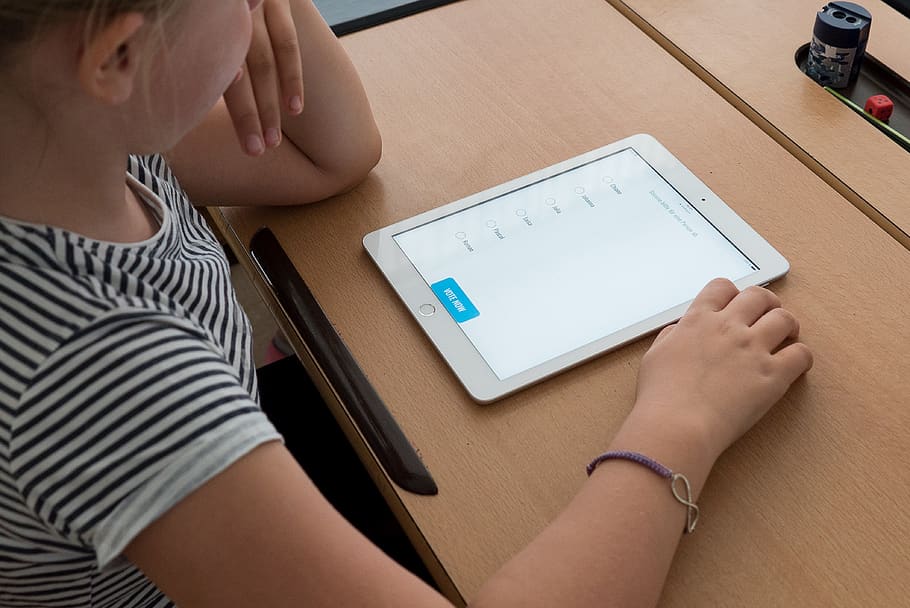With the coronavirus pandemic, students and teachers across Maryland have had to experience a new way of learning. While no one is sure what the fall will bring, it’s safe to say that there will be a significant number of changes. Distance learning, too, will likely continue to play a role in next year’s academic calendar.(1) But, how is remote learning affecting students with unique learning needs and challenges? According to a new survey, families of children receiving special education services have reported less support and more difficulty with distance learning than other student populations.
Concerns for Remote Special Education
As reported by NPR, the advocacy group ParentsTogether recently surveyed families across the country about their experiences in distance learning.(2) In response, 39% of parents with children who have IEPs reported receiving no support at all. 35% of families also said that few or no remote learning opportunities had been given to their children. Only 17% of general education parents said the same thing.(2)
With the lack of support and the amount of changes, it’s understandable that 40% of the special education parents surveyed said that they were concerned about the mental health of their children. Only 23% of other families had the same response.(2)
Maryland Resources for Special Education During COVID-19
It’s essential to support and engage students in special education despite remote learning challenges. Whenever possible, communicate with your child’s school about how best to continue following the IEP plan and services.
The executive director of Baltimore County Schools’ academic services department, Melissa Lembo Whisted, recently told WYPR that children in special education programs will be assessed upon their return to school in an effort to bridge any achievement gaps from the time spent away from in-person classes.(4)
Meanwhile, Disability Rights Maryland has put together a helpful guide for parents of children with IEPs. In the resource, Disability Rights Maryland explains that, while it may not be possible for children to currently receive every service that is on the IEP, students should still be able to access as many services as possible. (3) The school, they note, should also be providing any necessary training that you may need. (3)
The United Federation of Teachers has listed educational resources for remote learning, while the Maryland State Education Association has a list of frequently asked questions for educators regarding special education during the coronavirus. These FAQs could be equally helpful for parents to review. At the bottom of the questions list, there are links to several helpful resource guides, including a guide for emotional wellbeing to support students’ mental health during this crisis.
Maryland Learning Links also provides these resource guides, as well as additional support links and tools for parents, educators, and students.
Assessments, Consultations, and Therapy Services During COVID-19
NeuroBehavioral Associates remains open for all individuals with known or suspected learning, cognitive, or neurodevelopmental differences. We continue to limit the number of people in our office. We provide low-contact, in-office testing and maintain physical distancing.
Contact NeuroBehavioral Associates online today or call us at 410-722-7155 to schedule a comprehensive neuropsychological assessment. You can also inquire about our additional services, including consultation, IEP, and therapy services.
NeuroBehavioral Associates has also created a series of COVID-19 blog posts to guide you and your family through this time.
Resources:
- Bowie, L. (2020, May 26). Desks 6 feet apart? Elementary only? Temperatures taken at the door? Maryland schools plan for coronavirus contingencies. Retrieved June 17, 2020, from https://www.baltimoresun.com/coronavirus/bs-md-school-reopen-plans-20200526-d3pgf64ognhb5dgc4zyltgpwoi-story.html
- Kamenetz, A. (2020, May 27). Survey Shows Big Remote Learning Gaps For Low-Income And Special Needs Children. Retrieved June 17, 2020, from https://www.npr.org/sections/coronavirus-live-updates/2020/05/27/862705225/survey-shows-big-remote-learning-gaps-for-low-income-and-special-needs-children
- Disability Rights Maryland. (n.d.). Special Education and Your Child with an IEP During the COVID-19 Pandemic: A Brief Guide for Parents. Retrieved June 17, 2020, from http://www.marylandeducators.org/sites/default/files/docs/parent_guide_for_children_with_ieps.pdf
- Lee, J. (2020, April 14). Distance Learning Due To COVID-19 Especially Challenging For Special Educators. Retrieved June 17, 2020, from https://www.wypr.org/post/distance-learning-due-covid-19-especially-challenging-special-educators






